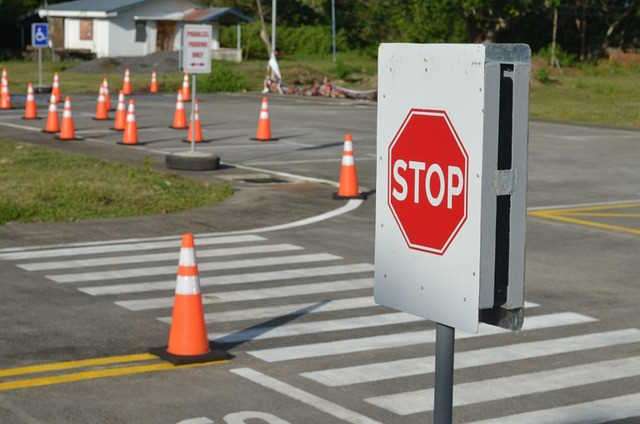- UK vs. South Africa Driving Tests
Comparing the driving tests of different nations provides valuable insights into the varied criteria and standards set for aspiring drivers. While the UK and South Africa share the common goal of assessing an individual’s ability to operate a vehicle safely, their tests differ significantly in terms of emphasis and structure.
In South Africa, the driving test often focuses on fundamental driving skills. Candidates are typically evaluated on their ability to handle the vehicle, follow traffic rules, and execute basic maneuvers. On the other hand, the UK’s driving test is renowned for its thoroughness. It not only examines fundamental skills but also encompasses independent driving, specific maneuvers like parallel parking, and the ability to navigate diverse road conditions. The UK test, therefore, demands a higher level of proficiency from candidates.
- Utilizing Apps for Test Cancellations
In recent years, the process of securing a driving test slot in the UK has witnessed a significant shift with the advent of mobile applications. One noteworthy app is ‘like this site that finds driving test cancellations.’ These apps leverage sophisticated algorithms to continuously scan the official booking system for any cancellations or newly available slots. For example, there are now many apps that act like driving test cancellation checkers and have been a lifesaver for some users to find cancellations.
For learners eagerly waiting for an opportunity to take their driving test, these applications have become indispensable. Users receive real-time notifications about available slots, providing them with the chance to expedite their tests. The integration of technology into this aspect of the driving test process not only eases the frustration of prolonged waiting times but also exemplifies how innovation can address challenges within bureaucratic systems.
- Typical Pass Rates in the UK
Understanding the typical pass rates for the UK driving test provides a glimpse into the examination’s rigor and the preparedness of candidates. The average pass rate generally hovers around 45-50%, though this can vary based on factors such as the location of the test center and individual candidate proficiency.
The driving test in the UK is a comprehensive evaluation that includes both theoretical knowledge and practical driving skills. Candidates must demonstrate a deep understanding of road rules, hazard perception, and the ability to drive safely in various scenarios. However, the impact of the backlog and prolonged waiting times due to the COVID-19 pandemic may influence these pass rates. As candidates wait for their turn to take the test, maintaining a high level of readiness becomes challenging.
- Impact of COVID-19 on the Backlog
The COVID-19 pandemic left an indelible mark on various aspects of society, and the UK’s driving test system was no exception. Between 2020 and 2023, the system faced unprecedented challenges due to lockdowns, social distancing measures, and safety protocols. These measures resulted in a substantial backlog as countless tests were canceled and rescheduled, creating a domino effect of delays.
The surge in demand for driving tests, coupled with the constraints imposed by safety measures, created a perfect storm. Learners found themselves in a prolonged state of uncertainty, eagerly awaiting their turn to take the test. The impact of the backlog extended beyond mere inconvenience, affecting the preparedness and confidence of those ready to prove their driving skills.
- Initiatives to Tackle the Backlog in 2024
As 2024 unfolds, concerted efforts are underway to address the persistent backlog in driving tests. Governmental bodies and relevant authorities have recognized the urgency of the situation and have implemented a range of strategies to alleviate the strain on the testing system.
One significant initiative involves the expansion of test centers. By increasing the number of test centers, authorities aim to accommodate a higher volume of tests, thereby reducing waiting times for learners. Additionally, there has been a focused effort to recruit and train additional examiners to conduct more tests efficiently. Furthermore, the implementation of more flexible scheduling systems is aimed at providing candidates with a broader range of available time slots, enhancing accessibility and reducing the backlog.
- Technology’s Role in Driving Test Preparation
The integration of technology into the preparation phase has been a transformative element in the realm of driving tests. Beyond the process of securing test slots, learners now have access to a myriad of online resources designed to enhance their knowledge and skills. Mock tests, hazard perception simulations, educational videos, and theory test apps have become integral tools for candidates preparing for their driving tests.
These technological aids offer a dynamic and interactive approach to learning, allowing candidates to practice and reinforce their theoretical knowledge. The use of technology in driving test preparation not only contributes to higher levels of proficiency among learners but also reflects a broader shift in how education and training are evolving in the digital age.
Conclusion
In conclusion, the landscape of UK driving tests in 2024 is characterized by a dynamic interplay of traditional examination processes, technological integration, and strategic initiatives to address systemic challenges. The comparison with South Africa highlights the diverse approaches to testing across nations, while the reliance on mobile applications signifies a paradigm shift in how individuals navigate the bureaucratic complexities of securing a test slot.
As the system grapples with the aftermath of the COVID-19 pandemic and the resulting backlog, ongoing efforts to expand infrastructure and streamline processes reflect a commitment to ensuring that the driving test system remains accessible and efficient. The integration of technology, both in securing test slots and preparation, showcases the adaptability of the system to contemporary challenges.
The journey towards obtaining a driver’s license in the UK is evolving, shaped by innovations and responses to unprecedented disruptions. While challenges persist, the collective efforts of authorities, coupled with the resilience of learners and the integration of technology, suggest a future where the driving test experience is more streamlined, accessible, and reflective of the evolving needs of a new generation of drivers.












